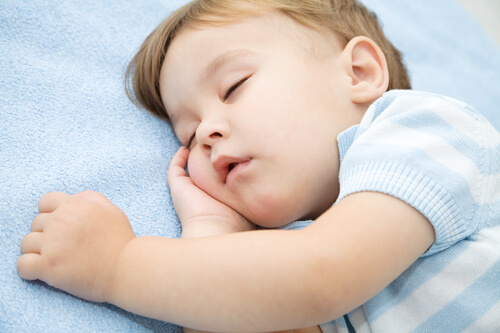 If your child has been falling asleep in class or during the daylight hours at home on the weekends, he might be suffering from sleep apnea. While temporary pauses in breathing while sleeping is no cause for concern, when kids stop breathing for extended periods, it can cause serious problems. As a result, they get a restless sleep and feel so drowsy during the day that they fall asleep during class.
If your child has been falling asleep in class or during the daylight hours at home on the weekends, he might be suffering from sleep apnea. While temporary pauses in breathing while sleeping is no cause for concern, when kids stop breathing for extended periods, it can cause serious problems. As a result, they get a restless sleep and feel so drowsy during the day that they fall asleep during class.
Sleep Apnea in Kids
Those with sleep apnea suffer from low levels of oxygen. Their sleep is disrupted as they actually stop breathing while trying to sleep. Most people think that only adults suffer from sleep apnea yet teens and kids are also susceptible. It occurs when the upper airway is blocked due to the relaxing of the muscles toward the back of the throat. When these relax too much, it prevents air from flowing as it normally does.
In other situations, sleep apnea is caused when one doesn’t get a suitable amount of oxygen while sleeping as the brain doesn’t communicate with the muscles that are in charge of the breathing process. This is actually a fairly common condition that prevents children from getting the restful sleep that they deserve. Kids who suffer from sleep apnea will likely struggle in class, have behavioral issues and might even develop heart problems. In extreme cases, it can be fatal.
Risk Factors
Those with especially large tonsils or adenoids are at an increased risk of sleep apnea as these tissues can block critical airways during sleep. This is the most prevalent cause of sleep apnea in children. Other risk factors include being overweight, medical conditions like cerebral palsy and down syndrome, an extraordinarily long tongue that can block the airway, a large neck, a family history of sleep apnea and an oddly structured jaw, mouth or throat that narrows the airway.
How to Know If Your Child Has Sleep Apnea
Aside from falling asleep in class, there are other indicators of sleep apnea. Your child might have sleep apnea if he or she breathes heavily while sleeping, snores or gasps while sleeping, wets his bed or exhibits behavioral problems.
Sleep Apnea Treatment
If your child has enlarged tonsils or adenoids, it might be the cause of sleep apnea. If this is the case, you should see a child specialist who’ll perform an operation referred to as an adenotonsillectomy. This will actually remove the tonsils and/or adenoids.
If your child’s doctor determines that the tonsils are not the cause of sleep apnea, there is another sleep apnea treatment available. He might recommend a therapy called continuous positive airway pressure (CPAP). This requires that your child wear a mask over his mouth and nose while sleeping. The mask is connected to a machine and sends air into your child’s open airways to ensure proper breathing throughout the night.
Share Tweet Email If you’ve been looking for a permanent treatment for snoring that doesn’t involve surgery or sleeping with a medical device, Elevoplasty® treatment is an option you may wish to consider. What Is Snoring? Snoring is the rattling sound which occurs when a patient breathes in air and the relaxed tissues of the throat vibrate. […]
Share Tweet Email Snoring is one of the most annoying sounds for people to attempt to sleep through. This overshadows the fact that snoring isn’t taken as a sign of potentially serious health issues. From your heart to your stomach, snoring can be the catalyst for problems like thick arteries and irregular heart beats. Danger […]
